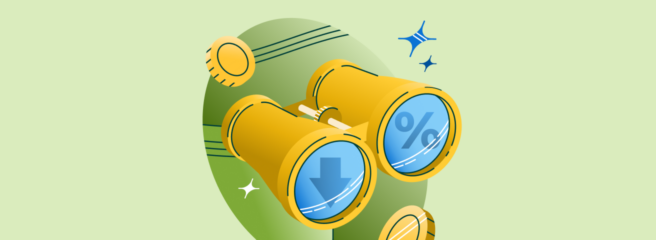
There are many different types of loans, but all of them are in one of two broad categories – unsecured loans and secured loans. Unsecured loans have become far more common in recent years due to increased consumer appetite for credit cards and the rapid growth of the personal loan industry. In this article, we’ll take a closer look at unsecured loans, how they differ from secured loans, and the pros and cons you need to know about.
What is an unsecured loan?
The key difference between unsecured loans and secured loans is that unsecured loans aren’t backed by any specific asset, while secured loans are.
Think of a mortgage loan. When you apply for a mortgage, the bank “secures” the loan with the home it is used to purchase. If you can’t (or don’t) make your mortgage payment, the bank has the right to foreclose on the home to recoup some or all of its money.
Secured loans are backed by things you own. The technical term for this is collateral. With property-specific loans like mortgages and auto loans, the collateral is the property the loan is used to buy. But it’s common to obtain a loan and pledge other collateral to secure it.
On the other hand, consider a credit card. Let’s say that you spend $5,000 on a credit card and are unable to pay it back. The credit card issuer can attempt to collect on the debt by calling you, referring your account to a collection agency, and reporting your missed payments to the credit bureaus. They can even sue you as a last resort. However, the credit card company cannot show up at your house and take the things you bought with the credit card, or any other specific assets. This is because a credit card is generally a form of unsecured debt.
Unsecured loans aren’t approved based on any collateral. Instead, unsecured loans are primarily based on you as a borrower. Lenders will likely take a close look at your credit score, income, employment situation, and other debts before approving an unsecured loan or unsecured credit line.
Examples of unsecured loans
Just to name a few, here are some of the most common types of unsecured loans:
- Personal loans
- Credit cards, other than secured credit cards as discussed in the next section
- Student loans
- Lines of credit, except home equity lines of credit
As you can see, there’s some gray area where a certain type of debt can either be secured or unsecured. Some personal lenders even offer secured personal loans, where the borrower is required to pledge collateral before receiving the funds.
Examples of secured loans
There are several types of secured loans consumers use regularly:
- Mortgages, which are secured by real estate.
- Home equity loans or HELOCs, which are also secured by real estate, but are usually in second position to a mortgage when it comes to a lender’s ability to foreclose.
- Auto loans, which are secured by a vehicle.
- Secured credit cards, which require the cardholder to put money in a savings account to serve as a security deposit.
These are not meant to be exhaustive lists. There are many other types of loans and debts you can have, and most are easily classified as either secured or unsecured loans.
Advantages of unsecured loans
The biggest advantage of an unsecured loan is that your property isn’t at risk if you can’t pay it back. If you can’t pay your mortgage, you can lose your home. If you can’t pay your auto loan, you can lose your car. But if you can’t pay an unsecured loan, the lender has to try to collect the debt through other means.
Think of it this way. A secured loan provides a safety net for the lender if you can’t pay. An unsecured loan provides a safety net for you. To be clear, you’ll still face consequences if you don’t pay an unsecured loan. But you aren’t likely to lose your home or your car because of it.
Drawbacks of unsecured loans
There are a few potential drawbacks to using an unsecured loan that you should keep in mind.
For one thing, it can be more difficult to get approved for credit if you’re looking for an unsecured loan. Because a secured loan has a built-in safety net for the lender in the event you can’t pay, they are generally considered less risky. This is why it can be easier to get an auto loan with bad credit than an unsecured personal loan.
In short, because there is no property being pledged, the focus becomes on how qualified you are as a borrower.
On a similar note, unsecured loans typically have higher interest rates than secured loans. For example, you’re more likely to get a better interest rate on a home equity loan than a personal loan, all other factors being equal. This is because the lender can foreclose on your home if you don’t pay the home equity loan, so it is likely to be a bigger priority to repay during tough times compared with an unsecured loan.
Finally, you might have a tough time getting a loan for the amount you need with an unsecured loan. For example, it’s rare to find an unsecured personal loan for more than $100,000, even if you have a phenomenal credit score and a high income. On the other hand, a home equity loan can be made for far more than that amount if the value of your home justifies it.
Should you get an unsecured loan?
Unsecured loans represent more of a risk for the lender, so it can be more difficult to get approved and get a favorable interest rate than with a secured loan. However, it can give you peace of mind to not have your assets at risk if you can’t repay the loan, and unsecured loans can be a great financial tool for many purposes.






 Won't affect your credit score¹
Won't affect your credit score¹